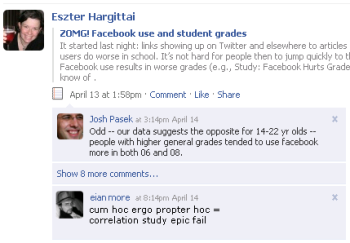The end of the Cold War, the collapse of the Soviet Union, the surge of prosperity worldwide that marked the global triumph of capitalism, the essentially conservative policies, especially in economics, of the Clinton administration, and finally the election and early years of the Bush Administration, marked the apogee of the conservative movement. But there were signs that it had not only already peaked, but was beginning to decline. Leading conservative intellectual figures grew old and died (Friedman, Hayek, Jeanne Kirkpatrick, Buckley, etc.) and others as they aged became silent or less active (such as Robert Bork, Irving Kristol, and Gertrude Himmelfarb), and their successors lacked equivalent public prominence, as conservatism grew strident and populist.
By the end of the Clinton administration, I was content to celebrate the triumph of conservatism as I understood it, and had no desire for other than incremental changes in the economic and social structure of the United States. I saw no need for the estate tax to be abolished, marginal personal-income tax rates further reduced, the government shrunk, pragmatism in constitutional law jettisoned in favor of “originalism,” the rights of gun owners enlarged, our military posture strengthened, the rise of homosexual rights resisted, or the role of religion in the public sphere expanded. All these became causes embraced by the new conservatism that crested with the reelection of Bush in 2004.
My theme is the intellectual decline of conservatism, and it is notable that the policies of the new conservatism are powered largely by emotion and religion and have for the most part weak intellectual groundings. That the policies are weak in conception, have largely failed in execution, and are political flops is therefore unsurprising … By the fall of 2008, the face of the Republican Party had become Sarah Palin and Joe the Plumber. Conservative intellectuals had no party.
Discuss.


 I looked at the first page an applicant has to fill out and found a question about religion with the options to the right on the screen shot. To be sure, this is not signaled as required information, nonetheless, I found it curious. For one thing, why is there no “Other” option? Anyone know anything about why such a job application would have this field in Singapore? Could this have to do with handling certain types of food? And somewhat unrelated (presumably), any thoughts on why McDonald’s doesn’t make it more clear on the site and form that this is the Singapore-specific job application form?
I looked at the first page an applicant has to fill out and found a question about religion with the options to the right on the screen shot. To be sure, this is not signaled as required information, nonetheless, I found it curious. For one thing, why is there no “Other” option? Anyone know anything about why such a job application would have this field in Singapore? Could this have to do with handling certain types of food? And somewhat unrelated (presumably), any thoughts on why McDonald’s doesn’t make it more clear on the site and form that this is the Singapore-specific job application form? Following up on
Following up on